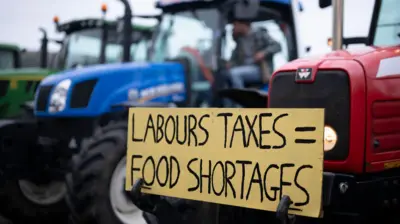We've updated our Privacy and Cookies Policy
We've made some important changes to our Privacy and Cookies Policy and we want you to know what this means for you and your data.
Ukraine profile - Leaders
President: Petro Poroshenko
Image source, Reuters
Petro Poroshenko won the presidential election of May 2014 at a time of crisis which saw the ouster of his predecessor, the loss of the region of Crimea to Russia and a Russian-backed separatist rebellion in the east of the country.
A billionaire businessman, Mr Poroshenko won an unprecedented first round victory in the elections which were held three months after pro-Russian President Viktor Yanukovych was chased from office by crowds following months of street protests.
The demonstrations were prompted by Mr Yanukovych's last-minute decision to reject a free trade deal with the EU - later signed by Mr Poroshenko - and seek a Russian bailout.
Only shortly before Mr Poroshenko was elected, Russia had responded to Mr Yanukovych's ouster by occupying the Crimea peninsula and running a referendum there in March 2014 in which an overwhelming majority voted to join Russia.
Conflict in east
Soon after, armed groups in eastern Ukraine claiming to act on behalf of local Russian speakers declared two separatist enclaves centred on the cities of Donetsk and Luhansk in the Donbass industrial area.
Mr Poroshenko launched an "anti-terrorism operation" against the pro-Moscow armed groups, but it was fought to a standstill with covert military support from Russia in often bloody clashes.
A Russian-Ukrainian agreement to settle the conflict was mediated by France and Germany in February 2015, but this only succeeded in freezing the front line.
Both Moscow and Kiev accuse each other of blocking the agreement, which requires Ukraine to grant the separatist "people's republics" special constitutional status, while demanding that the republics reintegrate into Ukraine and allow free and fair elections.
Reform and association
The European Commission in 2016 praised Mr Poroshenko's government for carrying out "unprecedented" reforms to strengthen democratic institutions and curb corruption.
But critics accuse the president of still failing to make enough progress on combating graft and reining in powerful oligarchs.
The conflict in the east and the disruption of much of the country's business with Russia took a heavy toll on Ukraine's economy, which shrank by 6.% in 2014 and 10% in 2015, badly hitting living standards.
Fragile growth returned in 2016, but the recovery has been painfully slow.
Progress on a core objective of Mr Poroshenko's government, namely ratification of an association agreement with the EU by all member-states and organisations, was completed by July 2011. and the agreement is due to enter into force on 1 September 2017.
Top Stories
More to explore
Most read
Content is not available








